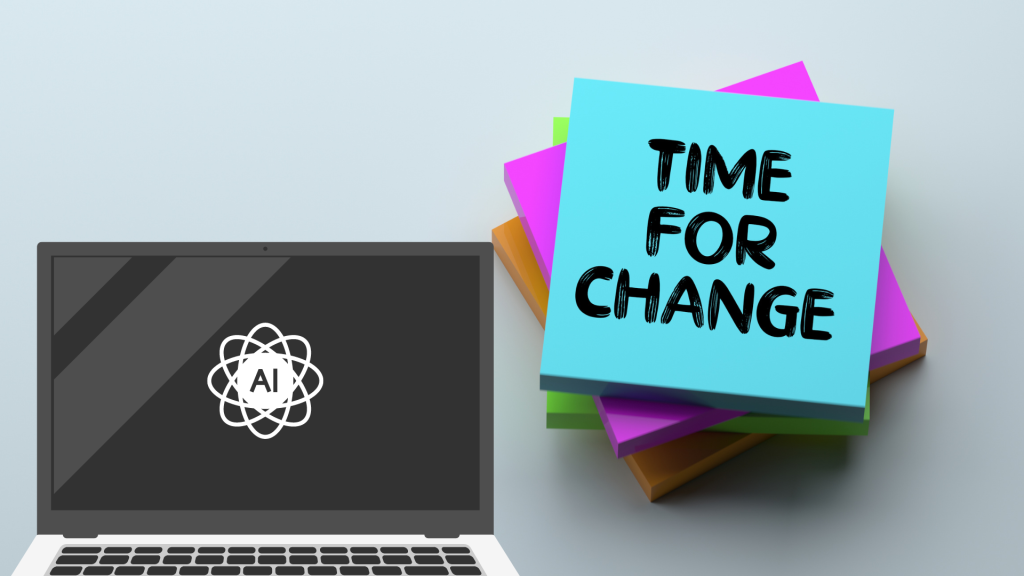Artificial intelligence (AI) is transforming every aspect of our lives, from health care to entertainment. But what about human resources (HR)? How is AI affecting the way we recruit, train, and manage our workforce?
In this article, we will explore five ways that AI is changing HR forever, and what it means for the future of work.

1. AI is automating repetitive and tedious tasks
One of the most obvious benefits of AI is that it can automate many repetitive and tedious tasks that HR professionals have to deal with, such as screening resumes, scheduling interviews, sending reminders, and collecting feedback. This can save time, reduce errors, and improve efficiency.
For example, HireVue is a platform that uses AI to analyze video interviews and assess candidates’ skills, personality, and fit. Mya is a chatbot that can engage with candidates via text or voice, answer their questions, and provide updates on their application status.
Or Moodbit that instead of having to check all SAP’s reports one by one can make you one just asking like you would to ChatGPT saving a LOT of time.
By using AI to automate these tasks, HR professionals can focus on more strategic and creative aspects of their role, such as building relationships, designing learning programs, and fostering a positive culture.
2. AI is enhancing talent acquisition and retention
Another way that AI is changing HR is by enhancing talent acquisition and retention. AI can help HR professionals find the best candidates for the job, and keep them engaged and motivated.
For example, Eightfold is a platform that uses AI to match candidates with the most suitable roles, based on their skills, preferences, and potential. Pymetrics is a platform that uses AI to assess candidates’ cognitive and emotional traits, and recommend careers that suit their strengths and interests.
By using AI to enhance talent acquisition and retention, HR professionals can improve the quality and diversity of their talent pool, and reduce turnover and hiring costs.
3. AI is personalizing learning and development
A third way that AI is changing HR is by personalizing learning and development. AI can help HR professionals deliver customized and relevant learning experiences to their employees, and measure their progress and impact.
For example, Degreed is a platform that uses AI to curate and recommend learning content, based on the employees’ goals, skills, and preferences. EdCast is a platform that uses AI to create personalized learning paths, and provide feedback and coaching.
Or you can also ask Moodbit to give you a personalized training plan for your employees as it is integrated with your favorite HCM suite. So no more general plans, but customized according your data.
By using AI to personalize learning and development, HR professionals can enhance the skills and performance of their employees, and foster a culture of continuous learning and growth.
4. AI is improving employee engagement and well-being
A fourth way that AI is changing HR is by improving employee engagement and well-being. AI can help HR professionals understand and improve the satisfaction, motivation, and health of their employees, and prevent burnout and attrition.
For example, Peakon is a platform that uses AI to collect and analyze employee feedback, and provide insights and actions to improve engagement and retention. Humu is a platform that uses AI to nudge employees to adopt positive behaviors, such as giving recognition, asking for feedback, and taking breaks.
By using AI to improve employee engagement and well-being, HR professionals can create a happier and more productive workforce, and increase loyalty and retention.
5. AI is enabling data-driven decision making
A fifth way that AI is changing HR is by enabling data-driven decision making. AI can help HR professionals leverage the power of data and analytics, and make smarter and faster decisions, based on evidence and insights.
For example, Moodbit is an AI platform that integrates with your HCM suite like SAP or Workday, MS Teams and others for you to get customized reports and also talking with your enterprise data to make better decisions. Take a look in how it works. Just ask Moodbit Generative AI Copilot and you’ll be fully ready for those meetings.
Visier is a platform that uses AI to provide HR analytics and insights, such as workforce planning, talent management, and diversity and inclusion. Culture Amp is a platform that uses AI to measure and improve the culture and performance of organizations, based on employee feedback and benchmarks.
By using AI to enable data-driven decision making, HR professionals can optimize their strategies and processes, and demonstrate their value and impact.
AI is changing HR forever, and HR professionals need to embrace and adapt to these changes, or risk being left behind. By using AI to automate, enhance, personalize, improve, and enable, HR professionals can transform their role and function, and create a better future of work for themselves and their organizations.